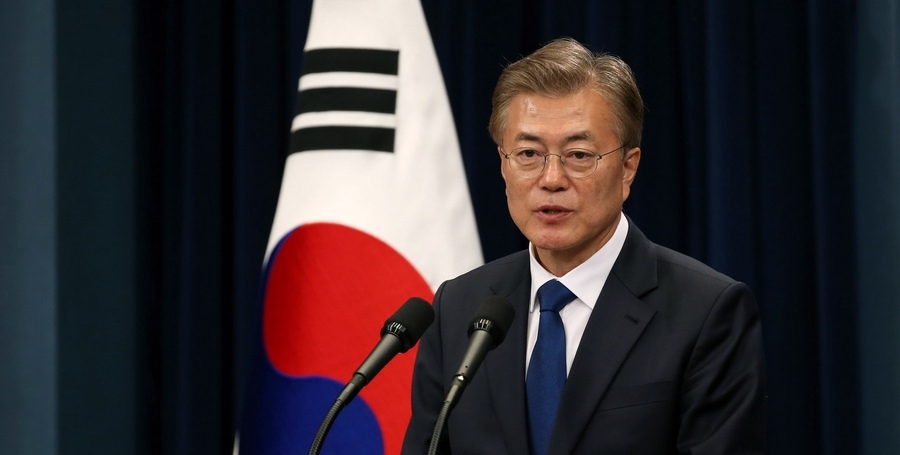Sending aid to North Korea
September 21, 2017 | Expert Insights

South Korea has announced that it will be sending across $8 million worth of humanitarian aid to North Korea.
Background
North Korea is one of the most secretive nations in the world. The United Peninsula was occupied by Japan between 1910 and 1945. Towards the end of the World War II, Soviet troops advanced towards Korea to take over from the vanquished Japanese forces. The United States, which by then had begun to distrust the Soviets, requested them to stop their offensive. By 1948, the country was partitioned into North and South Korea. In 1950, North Korea supported by Chinese and Russian forces invaded South Korea. US forces along with the United Nations intervened on behalf of South Korea and the invading army was driven out. US forces along with the United Nations intervened on behalf of South Korea and the invading army was driven out. Though an armistice was signed in 1953, there has been no peace treaty signed to this day. Currently 28,500 American soldiers, sailors, airmen and Marines form part of United States Forces Korea (USFK) in South Korea.
The fates of the two regions diverged in the decades to come. South Korea embraced market economy and became one of the technologically advanced nations in the world. On the other hand, North Korea favored a totalitarian system that isolated itself from most of the world. It relied heavily on aid from China and Russia.
Analysis
Despite poor relations, South Korea has sent across aid to North Korea in the past. This is due to the fact the North Korean regime has often been marred by food shortages and famine. However, ever since North Korea conducted its fourth nuclear test last year, the aid has been stopped. In 2017, North Korea test launched a number of intercontinental ballistic missiles (ICBM) and conducted its sixth nuclear test.
The World Food Programme and UNICEF reportedly approached South Korea to send across urgently needed aid to North Korea. A report by the UN that was published in June 2017 stated that due to a decrease in rainfall levels between April to June, cereal production reached an unprecedented low. The report warned of a food security crisis in the region.
South Korea’s Unification Minister Cho Myong-gyon has announced that a decision was reached by the country and the two bodies. In accordance to the agreement, South Korea will send $4.5 million worth of nutritional products for children and pregnant women. This will be sent through WFP. South Korea will send medicines and vaccines worth $3.5 million through UNICEF. The aid for North Korea have reportedly knocked down South Korean President Moon Jae In’s approval rating domestically.
Cho said that these measures were taken in spite of the political instability in the region. He noted, “We have consistently said we would pursue humanitarian aid for North Korea in consideration of the poor conditions children and pregnant women are in there, apart from political issues.”
Karin Hulshof UNICEF’s regional director for East Asia and the Pacific said that the children in North Korea have to deal with a number of serious problems. Hulshof said, “Today, we estimate that around 200,000 children are affected by acute malnutrition, heightening their risk of death and increasing rates of stunting. Food and essential medicines and equipment to treat young children are in short supply.”
South Korea’s decision has reportedly irked the governments in Japan as well as the United States.
Meanwhile, the North Korean regime has continued being critical of the US. North Korea's Foreign Minister, Ri Yong Ho compared US President Donald Trump’s UN address to a “barking dog.”
Assessment
Our assessment is that while South Korea’s decision may be politically unpopular domestically and internationally, it is however a humane move. South Korean efforts to help its isolated neighbor could result in softening of North Korea’s stance. We believe that there is a larger issue of mutual concern to both North and South Korea. It is the deployment of the US Thaad missile systems in South Korea which is a security concern for both the countries.








Comments